
Winner and Finalists for 2024 Contest
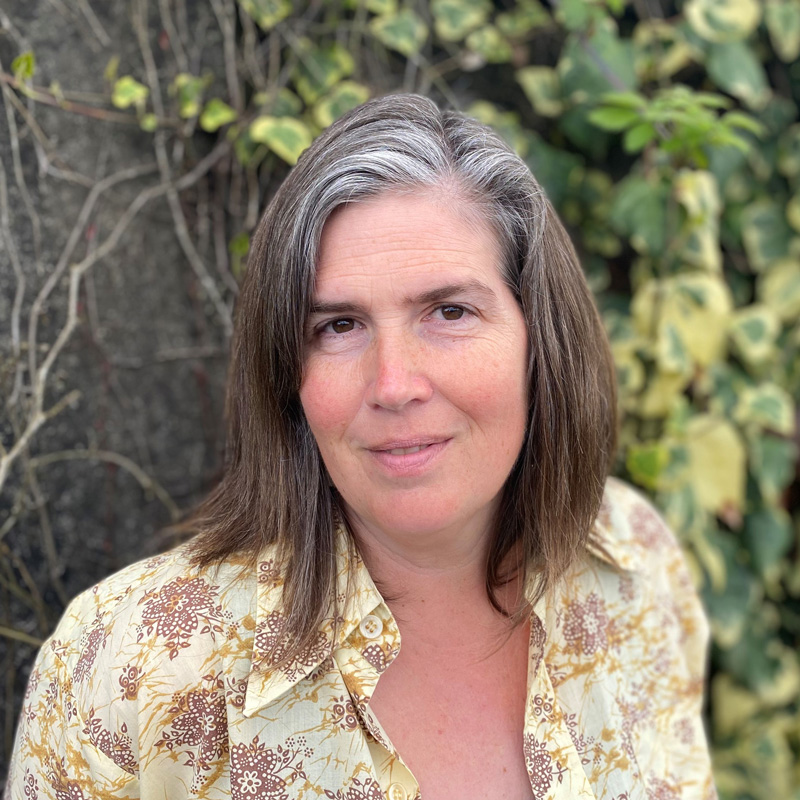
Winner:
ANDREA SCOTT for In the Warm Shallows of What Remains
The world is ending; there is a need for new stories “more happy than sad but still true.” And Andrea Scott has done it with innovative poems in various forms that offer hope while being clever, delightfully relatable, and expertly crafted. Beginning with a prose poem: “Dear P.K. Page re: care instructions for our beloved Planet Earth,” readers are invited to think about the earth and how “we haven’t loved it properly.” In “I Have Only Ever Been of This Earth,” the speaker dreams of flying while “thinking / happy things” with “echoes of Peter Pan.” While “The World Was Ending,” the poet “made soup to move along / three chicken carcasses in ziplocs in the deep freeze.” Glosas include lines from Rumi, The Tragically Hip, Barbara Pelman, and P.K. Page who was a master of the form. And now we’ve met another master! We can’t wait for more people to read these poems and to become uplifted in the midst of it all.
Andrea Scott is a mother, writer and high school teacher living in Victoria, B.C., the traditional territory of the Lekwungen Peoples. Publications include Geist, Arc Poetry Magazine, The Humber Literary Review and The Antigonish Review. She was longlisted for the 2023 Room Poetry Contest and the 2023 CBC Poetry Prize. She won the 2022 Geist Erasure Poetry Contest and was a finalist for the FBCW 2022 Literary Contest and the 2020 CBC Poetry Prize. She is currently completing an MFA at UBC.
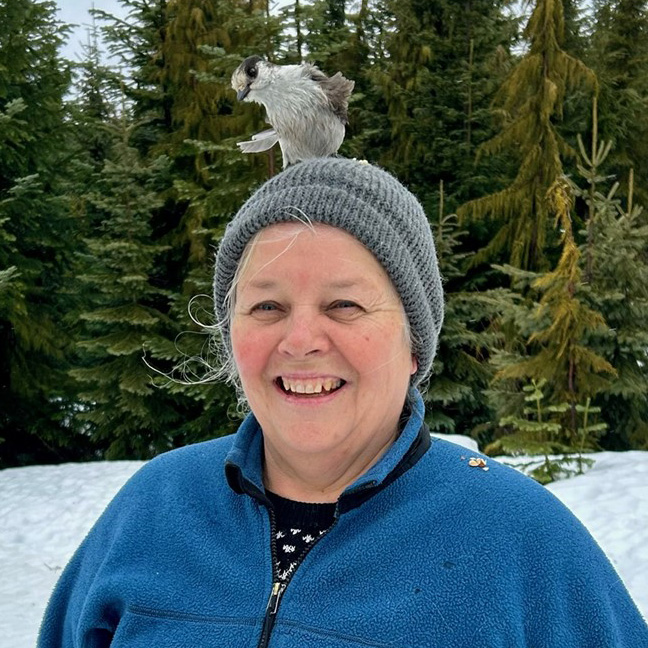
Second Place:
Carol Gall for The Opposite of Inconsequential
These are poems of the seasons, beautifully rendered: the garden as escape, as therapy, as urgent need, as a father lies dying. The father wants her advice on assisted dying, the poet must escape to fresh air, “the necessary thing.” The garden chores sustain her during the need to keep up with spring, the surging life force. The ability to care so tenderly despite emotional and physical exhaustion, and the honesty about the discomfort of the necessary intimacy of caring for a parent’s frail body elevate these poems high above the easy image, the expected metaphor. Carol Gall has written a marvellous sequence, an unflinching memoir.
Carol Gall lives and writes on beautiful Quadra Island where she divides her time between growing food and soaking in the natural world around her, living it all a second time around through her poetry and fiction.
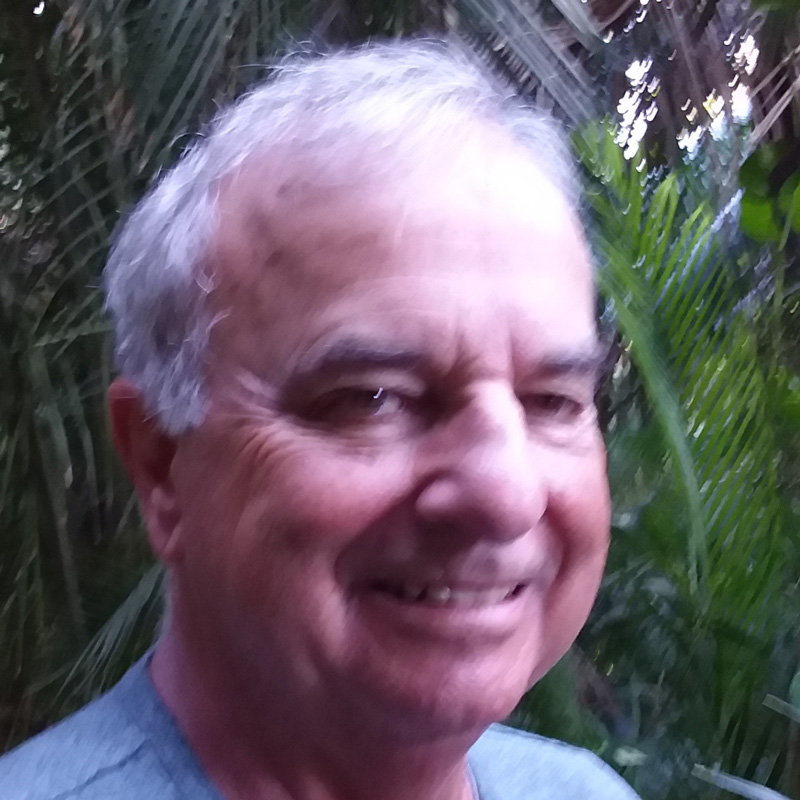
Third Place:
Ken Cathers for A Field Guide to Imaginary Beasts
Oh dear, “even they went extinct” Ken Cathers reports of the imaginary beasts and yet the speaker of these poems has “a pocket-sized / field guide” – two copies in fact, although, unfortunately, useless. Cathers has tuned in to “the parasites / of heaven, disguised / as fiction.” And so as to confuse and surprise (strike!), they “have simply changed / their names / assumed our likeness.” We must pay attention as “we are ruined / by what we do not believe.” This collection of poems is completely unexpected in its inventiveness and originality with fantastical imagery of creatures imagined and real and how we love them to death.
Ken Cathers was born in Ladysmith, B.C. and has lived most of his life on Vancouver Island. He is married with two adult sons and three Grandchildren. He has a B.A. from the University of Victoria and a M.A. from York University. He has been writing and publishing for over fifty years. During that time he has been published in over 60 periodicals and 12 anthologies. He has also published 2 posters and 8 books of poetry with various presses such as Oolichan Press, Thistledown Press, Ekstasis Editions and Impspired Press in England. He has also published 3 chapbooks, most recently kiefer with Brokepress and Legoland Noir with Blockparty Press.
Honourable Mentions: [in alphabetical order]
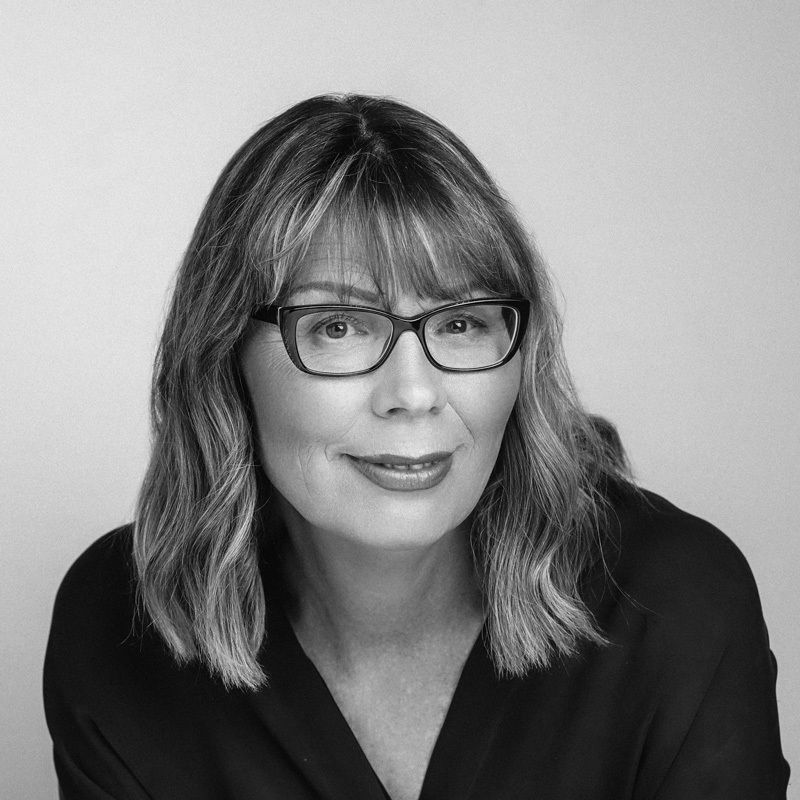
Susan Alexander for Berberitzen
“Poems which illuminate the natural world as setting for a grave illness of a loved one.”
Susan Alexander is the author of two collections of poems, Nothing You Can Carry and The Dance Floor Tilts, Thistledown Press. Her poems have won awards and appeared most recently in The Southern Review as well as anthologies and literary magazines in Canada, the U.K. and the U.S. Susan has hosted poetry readings and panels for the Federation of BC Writers and Victoria’s Festival of Writers. She lives on Nexwlélexm/Bowen Island, the traditional and unceded territory of the Squamish people.
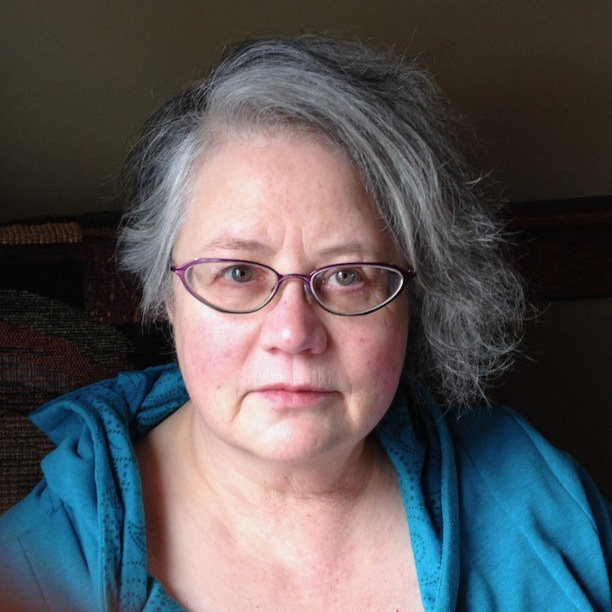
Jacqueline Bell for The Imperfect
“This poet even writes about writing a poem which offers something fresh as well as other advice and questions worthy of contemplation; missives to the lost and gone, in search of love.”
Jacqueline Bell’s first book, burning for it, was published by Rowan Books, and shortlisted for the Writers’ Guild of Alberta’s Henry Kreisel award for best first book. In 2017, hands fall open, was Runner-up for the John W. Bilsland Literary Award. Her poetry has been published in literary journals including The Fiddlehead, Grain, The New Quarterly, Prairie Fire, and Event. Her work has also appeared in thirteen anthologies. A chapbook, Ubi Sunt, is forthcoming in 2024 from Alfred Gustav press.
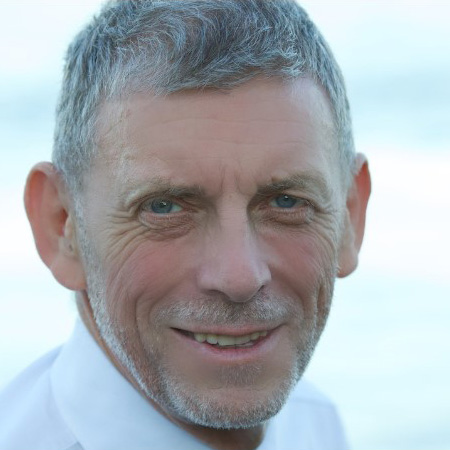
Michael Boissevain for The Long Table
“Well-crafted poems with the comfort of the familiar as well as surprising delights – ‘hypnotizing chickens’ and a ‘beer-drinking Buddha’!”
I am a psychologist and poet. I am equally attached to both roles and each persona informs the other. I have been writing poetry my whole life, but it is only in the past few years that I have begun to release my poems into the wild. I find that inevitably, my writing inclines toward relationships: with family past and present, with lovers past and present, with mentors, villains, and jesters, and especially, with the land.
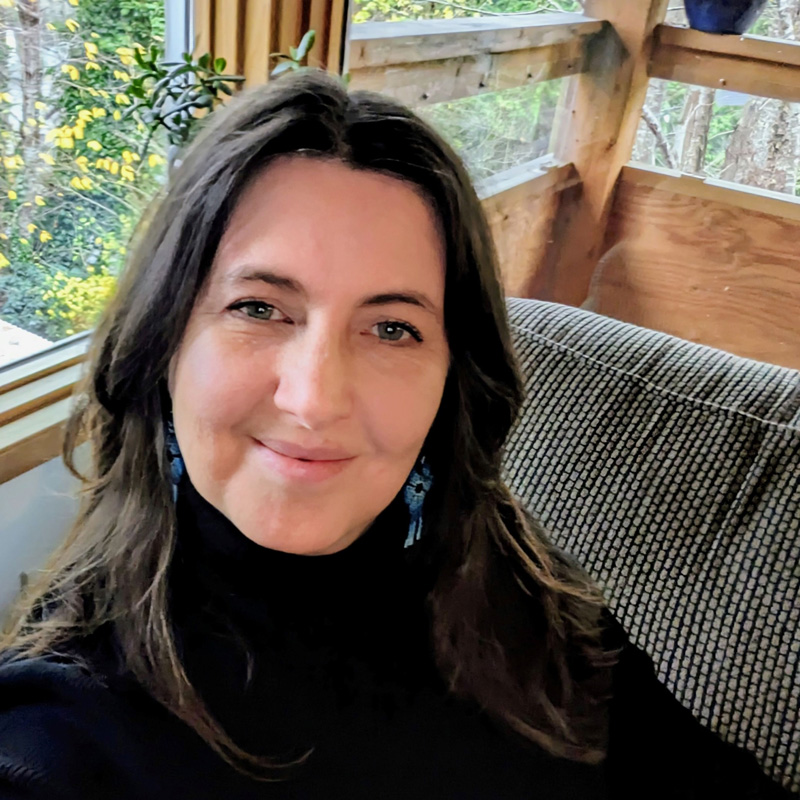
Rebecca Hendry for The Lightning Tree
“These poems are detailed survival instructions for those who grieve, those walking the earth ‘no longer whole’ when the universe has ‘cracked apart’.”
Rebecca Hendry has published two novels, One Good Thing (Touchwood Editions, 2018) and Grace River (Brindle and Glass, 2009), and her short fiction has appeared in the Dalhousie Review, Wascana Review, Event, Windsor Review, Room, and other literary journals. She has been a book editor for over twenty years, working for Canadian publishing houses as well as self-publishing companies and private clients. She lives in Gibsons, BC.
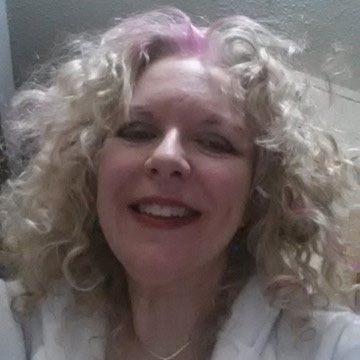
SheLa Nefertiti Morrison for Exposure Therapy
“The poet concocts a ‘Sea Anemone Martini’ and consults the ‘Squished Octopus Oracle’ in poems which celebrate life, particularly the natural world, with familiar expressions crafted in a fresh and amusing light.“
SheLa Nefertiti Morrison’s poems have been shortlisted twice for DESCANT/Winston Collins Best Canadian Poem. She is currently shopping around a poetry collection and two novels. She is inspired by her pet rats (bubs), friendship, natural science, “the sensualities”, world cuisine, fine art, environmentalism – for a start. Living with head injury/A.D.D. and severe chronic pain, she relates to the Samuel Langhorne Clemens (Mark Twain) quote: “I have been through some terrible things in my life, some of which have actually happened.”
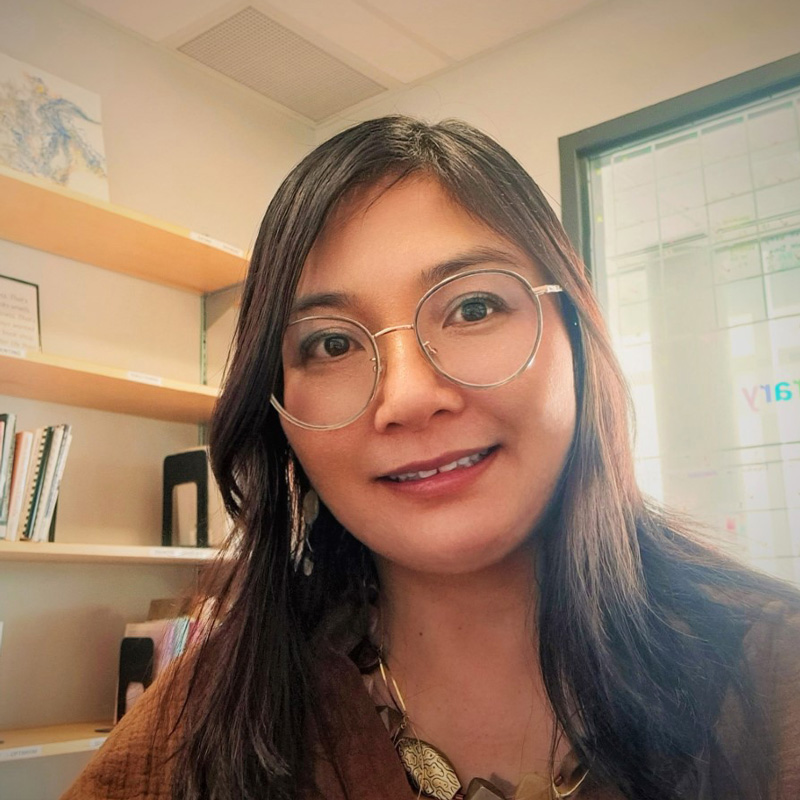
Jeanette Vo for Ukulele Therapy
“A whimsical and hopeful collection with each poem simple yet powerful as these poems choose ‘ukulele therapy’ over prescriptions; they seek ‘bird zen’ with a ‘sound that doesn’t take itself too seriously’.”
Jeanette Vo lives in Richmond, BC on the ancestral land of the Coast Salish peoples. She holds a BA in English literature and psychology from the University of British Columbia. Her poems and short stories have appeared in various magazines including Archetype, Blank Spaces, Ricepaper, Existere, and filling Station.
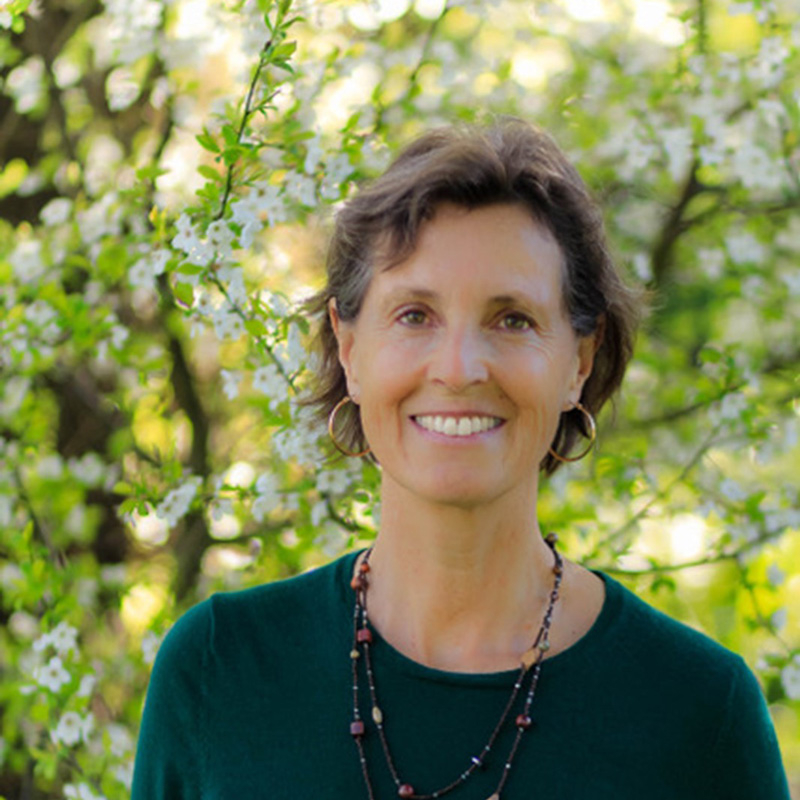
Cynthia Woodman Kerkham for Object Lessons
“The poet elevates the real, sometimes to the surreal, in these often startling prose poems about the way we confine ourselves with our wounds, our pleasures, our possessions.”
Cynthia Woodman Kerkham’s work has appeared widely in literary journals and anthologies. She’s won The Malahat Review’s Open Season Award, the Federation of BC Writers Contest, the John Lent Poetry/Prose chapbook award and has been shortlisted for various contests, including the CBC Poetry Prize. She’s the author of with feathers (Kalamalka Press, 2023), Good Holding Ground (Palimpsest Press, 2011), and co-editor of the anthology Poems from Planet Earth (Leafpress, 2013). Water Quality, is forthcoming from McGill Queens University Press in Fall 2024.
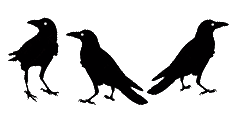
THANK YOU TO ALL THE POETS WHO SUBMITTED WORK FOR THIS CONTEST
Judges for the 2024 contest were B.C. poets, Mary Ann Moore and Ursula Vaira.
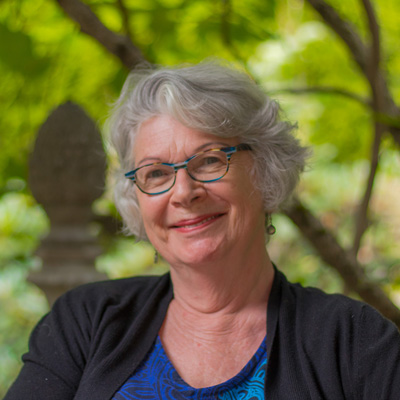
Mary Ann Moore (she/her) lives on the traditional lands of the Snuneymuxw First Nation in Nanaimo. She is a poet, writer, and writing mentor offering writing circles where “unsuspecting poets are born.” Her work has appeared in many literary journals including Prairie Fire, Room, Vallum, and Freefall, as well as collections including chapbook anthologies edited by Patrick Lane. Her full-length book of poetry is Fishing for Mermaids (Leaf Press) and her latest poetry chapbook is Mending (house of appleton). Mary Ann Moore is also the author of two writing guides: Writing to Map Your Spiritual Journey (iajw.org) and Writing Home: A Whole Life Practice (Flying Mermaids Studio).
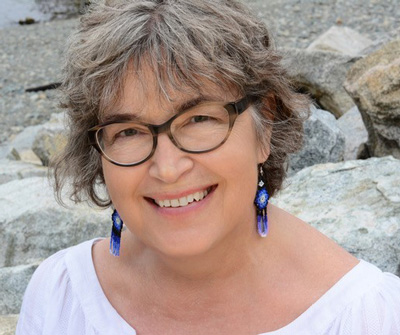
Ursula Vaira lives on the traditional lands of the Snuneymuxw First Nation in Lantzville. She is the founder and publisher of Leaf Press, which during its fabulous run of twenty years published seventy hand-sewn chapbooks and thirty-six trade poetry books. She published three long poem chapbooks of her own; her first collection And See What Happens was published by Caitlin Press. Her current manuscript is the story of a damaged creek, the salmon who try to spawn in it, and the streamkeepers who tend to them as population growth, deforestation, industry, and climate bombard the planet. From them she has learned the antidote to despair.
